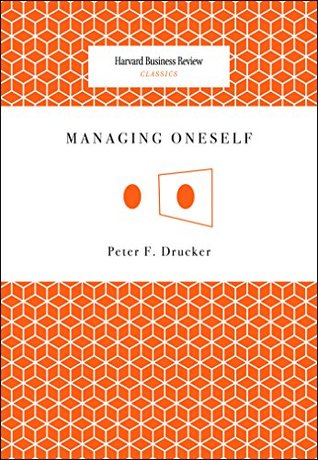More on this book
Community
Kindle Notes & Highlights
Read between
May 24 - May 28, 2019
The only way to discover your strengths is through feedback analysis. Whenever you make a key decision or take a key action, write down what you expect will happen. Nine or 12 months later, compare the actual results with your expectations.
the steadfast focus on performance and results that this habit produces explains why the institutions these two men founded, the Calvinist church and the Jesuit order, came to dominate Europe within 30 years.
First and foremost, concentrate on your strengths. Put yourself where your strengths can produce results.
Second, work on improving your strengths. Analysis will rapidly show where you need to improve skills or acquire new ones.
Third, discover where your intellectual arrogance is causing disabling ignorance and overcome it.
Go to work on acquiring the skills and knowledge you need to fully realize your strengths.
bulldozers move mountains; ideas show where the bulldozers should go to work.
Manners are the lubricating oil of an organization. It is a law of nature that two moving bodies in contact with each other create friction. This is as true for human beings as it is for inanimate objects. Manners—simple things like saying “please” and “thank you” and knowing a person’s name or asking after her family—enable two people to work together whether they like each other or not.
One should waste as little effort as possible on improving areas of low competence. It takes far more energy and work to improve from incompetence to mediocrity than it takes to improve from first-rate performance to excellence.
Of all the important pieces of self-knowledge, understanding how you learn is the easiest to acquire. When I ask people, “How do you learn?” most of them know the answer. But when I ask, “Do you act on this knowledge?” few answer yes. And yet, acting on this knowledge is the key to performance; or rather, not acting on this knowledge condemns one to nonperformance.
Am I a reader or a listener? and How do I learn? are the first questions to ask. But they are by no means the only ones. To manage yourself effectively, you also have to ask, Do I work well with people, or am I a loner? And if you do work well with people, you then must ask, In what relationship?
Do not try to change yourself—you are unlikely to succeed. But work hard to improve the way you perform. And try not to take on work you cannot perform or will only perform poorly.
To be able to manage yourself, you finally have to ask, What are my values? This is not a question of ethics. With respect to ethics, the rules are the same for everybody, and the test is a simple one. I call it the “mirror test.” In the early years of this century, the most highly respected diplomat of all the great powers was the German ambassador in London. He was clearly destined for great things—to become his country’s foreign minister, at least, if not its federal chancellor. Yet in 1906 he abruptly resigned rather than preside over a dinner given by the diplomatic corps for Edward VII.
...more
most people, especially highly gifted people, do not really know where they belong until they are well past their mid-twenties. By that time, however, they should know the answers to the three questions: What are my strengths? How do I perform? and, What are my values? And then they can and should decide where they belong.
Successful careers are not planned. They develop when people are prepared for opportunities because they know their strengths, their method of work, and their values. Knowing where one belongs can transform an ordinary person—hardworking and competent but otherwise mediocre—into an outstanding performer.
it is rarely possible—or even particularly fruitful—to look too far ahead. A plan can usually cover no more than 18 months and still be reasonably clear and specific. So the question in most cases should be, Where and how can I achieve results that will make a difference within the next year and a half ?
Organizations are no longer built on force but on trust. The existence of trust between people does not necessarily mean that they like one another. It means that they understand one another. Taking responsibility for relationships is therefore an absolute necessity. It is a duty. Whether one is a member of the organization, a consultant to it, a supplier, or a distributor, one owes that responsibility to all one’s coworkers: those whose work one depends on as well as those who depend on one’s own work.
managing oneself demands that each knowledge worker think and behave like a chief executive officer.


